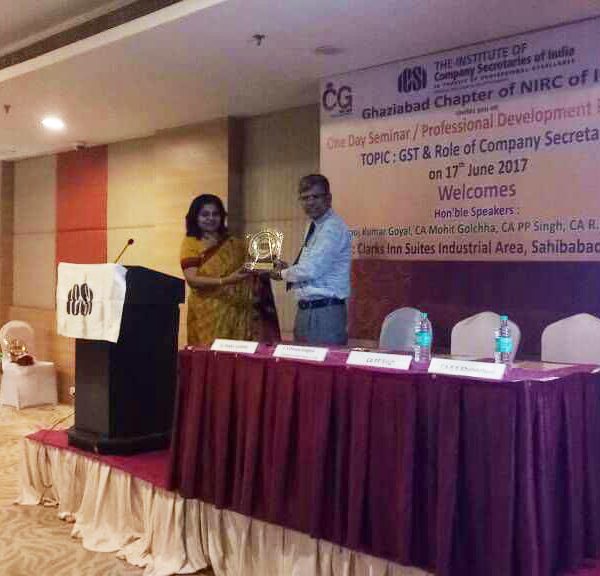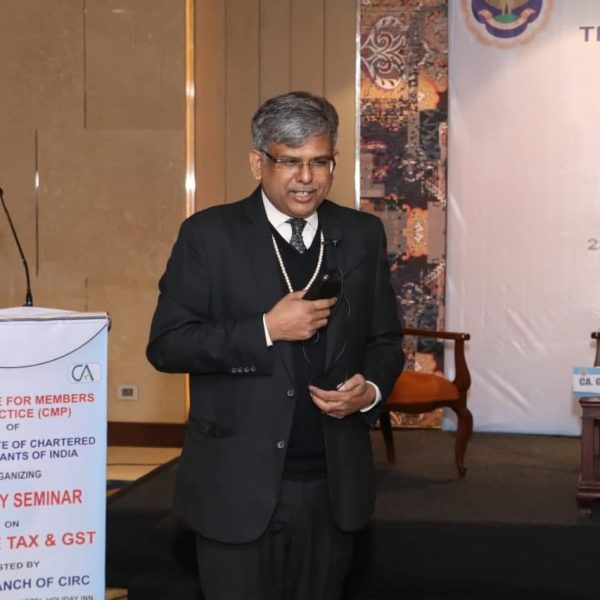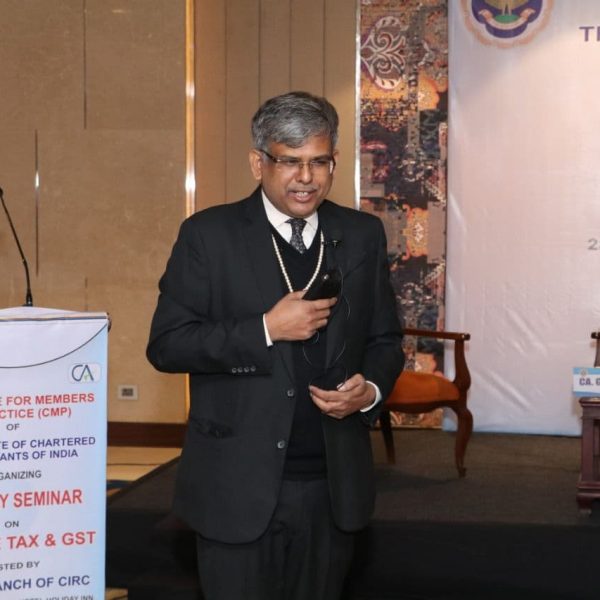INSURANCE CLAIM RECEIVED ON LOSS OF STOCK IN TRADE OR CAPITAL ASSETS
Introduction: Whether the amount received as an insurance claim on account of loss/damaged stock in trade /capital assets is taxable under GST?
GST is a tax on the supply of goods or services. refer to section 9 of CGST/SGST or section 5 of the IGST Act
It is important to understand the definition of goods under GST. as per section 2 (52) of the CGST/SGST “goods” means every kind of movable property other than money and securities but includes actionable claim, growing crops, grass, and things attached to or forming part of the land which are agreed to be severed before supply or under a contract of supply;
The actionable claim is defined in GST under section 2(1) as “actionable claim” shall have the same meaning as assigned to it in section 3 of the Transfer of Property Act, 1882.
As per the transfer of property act “actionable claim” means a claim to any debt, other than a debt secured by mortgage of immovable property or by hypothecation or pledge of movable property, or to any beneficial interest in movable property not in the possession, either actual or constructive, of the claimant, which the civil courts recognised as affording grounds for relief, whether such debt or beneficial interest be existent, accruing, conditional or contingent.
Debt: A debt is a liquidated or certain sum of money that the debtor is under the obligation to pay. It can be present or in the future. Debts can be secure and unsecured. Debt may be existing or future. When the debt is due in present it becomes an existing debt and when it is due in the future it is called accruing debt, but a debt secured by mortgage of immovable property or secured by hypothecation or pledge of moveable property, is not an actionable claim. In other words, generally actionable claims are claims of an unsecured debt existing or future contingent or conditional.
Further claim to any beneficial interest in movable property not in the possession either actual or constructive, of the claimant which the civil courts recognize as affording grounds for relief
whether such claims to debt or beneficial interest is existing or future or conditional or contingent,
Actionable claims are recognised by the court of law in order to provide relief in reference to unsecured debt or beneficial interest in movable property.
Conclusion: According to Section 3 of the Act, actionable claim means:
Claim to an unsecured debt- where the amount is certain/quantified.
The beneficial interest in a movable property
Examples of actionable claims are
right to get back the purchase consideration when the sale is set aside,
lottery tickets, betting, gambling, dividend shares,
insurance claims,
profit sharing agreement between the applicant and various shareholders of SHA,
Right to claim arrears of rent,Daya Debi v. Chapla Debi, AIR 1960 Cal 378.
Right to claim the benefit of the contract,
a right under a license,
Claim for money due under insurance policy,
The claim of return of earnest money.Lalchand v. Hussainio, (1927) 97 IC 257.
Right of a partner to sue for an account of the dissolved partnership firm.Bharat Prasad v. Paras Singh, AIR 1967 All 15.
- In the Union of India v. Sarada Mills (1972) case, the Hon’ble Supreme Court held that the actionable claim would include a right to recover insurance money. Hence, an actionable claim includes an amount due under a policy of insurance.
Claims not covered under Actionable Claim:
Right to claim damages, whether arising out of a tortuous or contractual liability is not an actionable claim because it is an uncertain amount & it is not a part of the original transaction. Further certain tortuous liability can’t be transferred as it is personal or attached to immovable property. Suppose Mr. A defames Mr. B, then Mr. B has the right to sue Mr. A for defamation; this right is personal in nature as Mr. B has been defamed and so, only Mr. B can have the right to sue Mr. A. So, this right cannot be transferred and it is not an actionable claim.
Similarly in the case of nuisance where, Y, drain pipes overflow into X’s lawn. Here, X has the right to sue for damages for the nuisance caused by Y because of the virtue of ownership that X has over his lawn. Hence, X is the only person who has this right to sue and no other unless such lawn is transferred to someone else. it is not a transferable actionable claim. But, if X sells his property to a third person, Z, then Z, along with the property, will also receive this right to sue Y for nuisance.
mesne profits: it is not an actionable claim because here only the right to sue but the amount is uncertain/unliquidated damages whereas for an actionable claim amount of the claim but be certain. Jai Narayan v. Kishun Dutta AIR 1924 Pat 551.
copyright, patent or trademark are not actionable claims because they already vest in the person who has it. These have their own governing Acts and are not transferable as they are the intellectual property of the claimant, and any other person cannot be allowed to claim that.Savitri Devi v. Dwarka Prasad, (1939) ALJ 71.
Decree or judgment of debt: This cannot be transferred as after the judgment has been pronounced, no action subsists that could be transferred.
Whether actionable claims are transferable?
Actionable Claims are transferable. The provisions related to the transfer of Actionable Claims are covered in Sections 130 to 137 of the Transfer of Property Act.
Actionable Claims can be transferred only by an instrument in writing. Such an instrument must be signed by the transferor or by his authorized agent. Further, it must be complete and comes into effect only when the instrument is executed. Upon execution, all the rights and remedies of the transferor shall lie with the transferee.
The transferee of an actionable claim may, upon the execution of the such instrument of transfer, sue or institute proceedings for the same in his own name without obtaining the transferor’s consent to such suit or proceeding and without making him a party thereto.
The Actionable Claim can be transferred in the form of a sale, exchange, gift, mortgage etc.
Actionable Claims can be assigned via an endorsement that is made at the back of the document. Such an endorsement contains that the actionable claim is sufficient and that no separate or additional document is required.
The transfer of the Actionable Claim is effective from the date on which such an assignment is made.
- Liability of transferee of actionable claim: The transferee is subject to all the equities and liabilities to which the transferor was liable at the date of transfer. Section 132.
Notice of transfer to be in writing: The transferee for his own purpose must provide the notice of transfer in writing signed by the transferor or his agent duly authorised in this behalf, or, in case the transferor refuses to sign, by the transferee or his agent, and notice shall state the name and address of the transferee. to the debtor. On receiving such a notice, the debtor becomes liable to pay such a debt to the transferee.
A person disqualified for actionable claim transferee: Certain persons can’t be Transferees of Actionable Claim: “No judge, legal practitioner or officer connected with any Court of Justice shall buy or traffic in, or stipulate for, or agree to receive any share of, or interest in, any actionable claim, and no Court of Justice shall enforce, at his instance, or at the instance of any person claiming by or through him, any actionable claim so dealt with by him as aforesaid.” (section 136). Further Section 6(h)(3) of the T.P Act provides that any property cannot be transferred to a person who is legally disqualified from receiving that property, that is, transfer cannot be made to legally disqualified transferees. Reading section 6(h)(3) with section 136 of the T.P Act bar such a person to be a transferee of actionable claim.
The reason behind this prohibition is to ensure the impartiality of the judiciary. The Privy Council illustrated the importance of this prohibition in the case of Kerakoose v. Serle by stating that- “It is of great importance that no officer of a Court of Justice should be even exposed to the suspicion that in the discharge of his official duties his conduct may be influenced by any personal consideration.”
Nature of actionable claim?
Actionable claim is an intangible movable property, and it is transferable. It can be recovered through proceedings in Courts also but not always.
While defining goods u/s 2(7) in the Sale of Goods Act, 1930 actionable claim is excluded because it is dealt with by the T.P. Act whereas the remaining goods are dealt with in the sales of goods act 1930.
Under GST actionable claim is within the definition of goods u/s 2((52) of the CGST/SGST “goods” means every kind of movable property other than money and securities but includes actionable claim, growing crops, grass, and things attached to or forming part of the land which are agreed to be severed before supply or under a contract of supply;
Further actionable claim is transferable and specific provisions are made in section 130 to 136 of the T.P. Act therefore it is covered in GST in general but all the actionable claims are not included in GST only a few actionable claims are in GST because of exclusion from supply as per schedule -III. Certain supplies are excluded from GST such as
SCHEDULE III
[See section 7]
ACTIVITIES OR TRANSACTIONS WHICH SHALL BE TREATED NEITHER AS A SUPPLY OF GOODS NOR A SUPPLY OF SERVICES
- ……………………………………………………………………………
- Actionable claims, other than lottery, betting, and gambling.
7……………………………………………………..
Conclusions: only the supply of lottery, betting, and gambling are covered under GST, and supply of other actionable claims are excluded from GST due to exclusion from definition of supply in schedule III, although definition of goods is wide enough to include all actionable claims.










